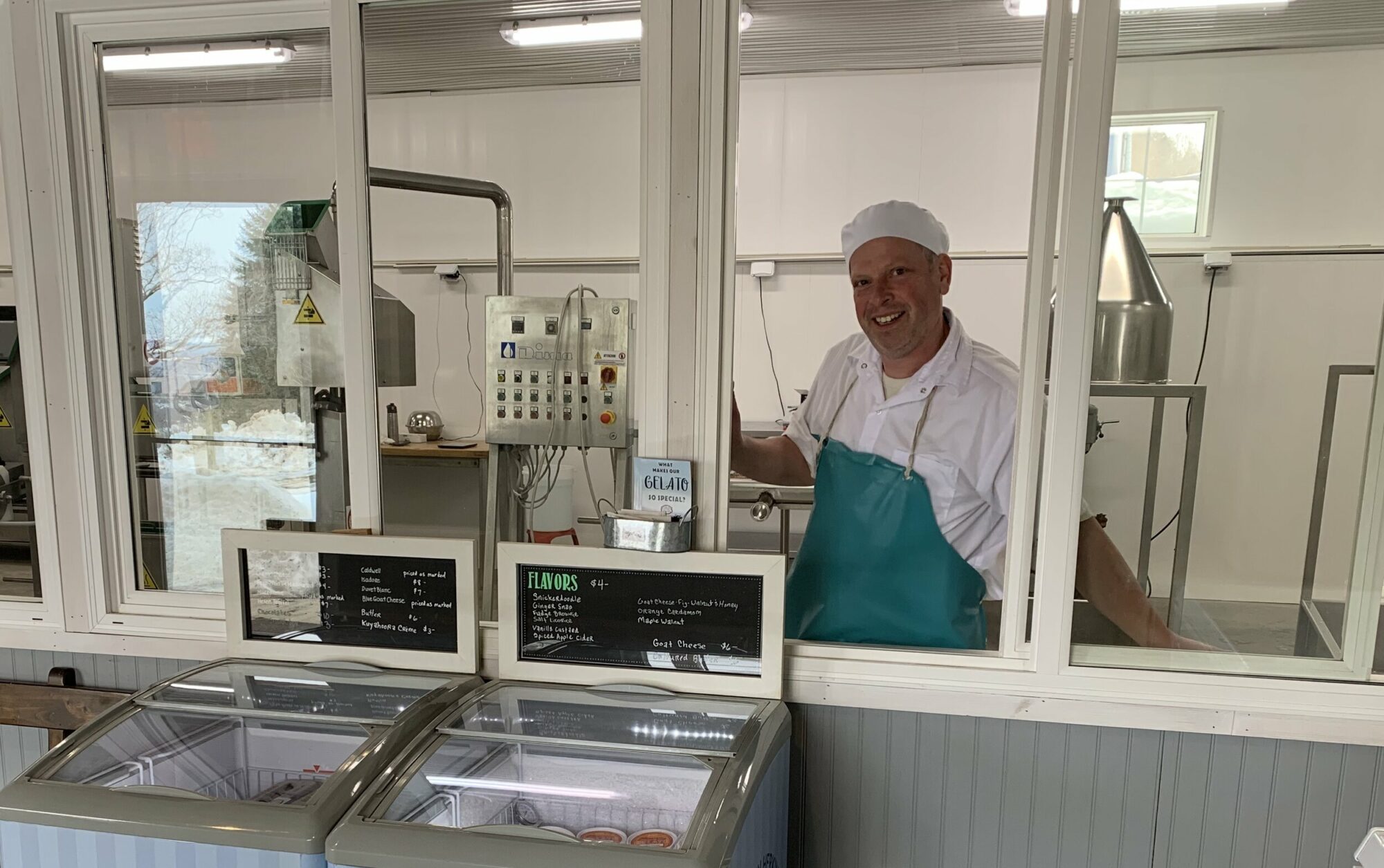So much has happened since the last Mohawk Valley Living was published; I hardly know where to start this month’s column! While I enjoyed a little “time off” from writing, I also missed being able to tell our family farm’s story.
We have kept very busy during New York State on Pause. As an essential business, our farm never actually shut down. After all, animals still need to be fed, chickens continue to lay eggs, cows and goats still need to be milked. But like so many other small businesses, our sales channels virtually disappeared overnight. In the course of about four days, we lost more than 80% of our business. A busy farmer’s market closed as a precautionary measure; restaurants certainly weren’t open for business; and the distributors that brought our goods to universities and stores suddenly had their own problems. It was a very dark two weeks that I alternated between sleepless nights and deciding which bills would (or would not) get paid.
I was especially worried we would fall through the cracks. We had just mortgaged everything we own to complete an expansion to our cheese plant, with lots of expensive equipment to fill it. Neither of us works an off-farm job to bring in extra income. We are “all in”, as they say, and couldn’t have felt more vulnerable. On top of that, it quickly became apparent that our oldest daughter is one of those people at greatest risk should she contract COVID-19. I wrote an impassioned plea to our Congressman Anthony Brindisi, in hope that small farmers were not forgotten in the bills Congress was proposing…and got a personal call back from the Congressman himself. I tried very hard not to cry during that phone call as Mr. Brindisi encouraged me to apply for a host of programs for which we were eligible.*
I went to work on ways to generate cash flow. People still need to eat, after all! I reached out to customers via social media offering a “whole farm CSA”—a gift card they could give to friends, family, or themselves. I created an online store and figured out how to ship our cheeses everywhere east of the Mississippi. I even teamed up with a young man that was transitioning from being an Instacart driver and he took contactless home deliveries to people who ordered via our website throughout the Mohawk Valley, a service we continue to provide today.
Thankfully, it wasn’t long before customers began to actively seek us out. Of all the dark news over the past several months, one of the brightest spots has been a heightened demand for local products. Knowing we’re all in this together has generated enormous amounts of good will toward locally owned small businesses. Sure, seeing certain grocery items vanish and meat counters empty (or nearly so) caused a small amount of panic for a short period, but it was word of mouth and a kindhearted Facebook Live visit from our friend, Tim Hardiman of Tailor & the Cook, that brought people out to buy from and support our farm. We set up a small on-farm store to accommodate the growing number of visitors we received each day.
As the days and weeks passed, I began to reach out to fellow farmers that I knew were also likely feeling the effects of the slowdown. We had a steady stream of customers coming to our farm to purchase local products, why not expand on our offerings? We quickly had pork, beef, lamb, and veal, as well as local honey, maple syrup, jams and jellies, baked goods, salsa, and milk in addition to our cheese, chicken, and eggs. I’ve been a vendor at farmer’s markets for nearly 15 years and am fortunate to have built wonderful relationships with fellow farmers whom I admire and trust. To be able to help them in some small way became part of my mission.
Now, as New York and the Mohawk Valley begin the process of safely re-opening, I wonder what will happen with the momentum that small, local agriculture has gained. Will consumers go back to their old buying habits or will at least some of them remember the foods and the high quality they were able to get during those dark days? Will our communities recognize the fragility of a global, large-scale food system that was so easily disrupted and decide to invest in a robust, local alternative? In other words, will we sow seeds of positive change and invest in local agriculture?
Farmers well understand the phrase “reap what you sow.” Farming requires months—if not years—of care, attention, and planning to coax a living from the soil. The last few months have clearly demonstrated that we NEED local agriculture. We NEED small and medium-sized farms here in the Mohawk Valley. By investing in and supporting farms around us today, we ensure that those farmers can feed us in good times and bad.
*We qualified for both the PPP and an SBA operating loan, which continue to help us to this day.
